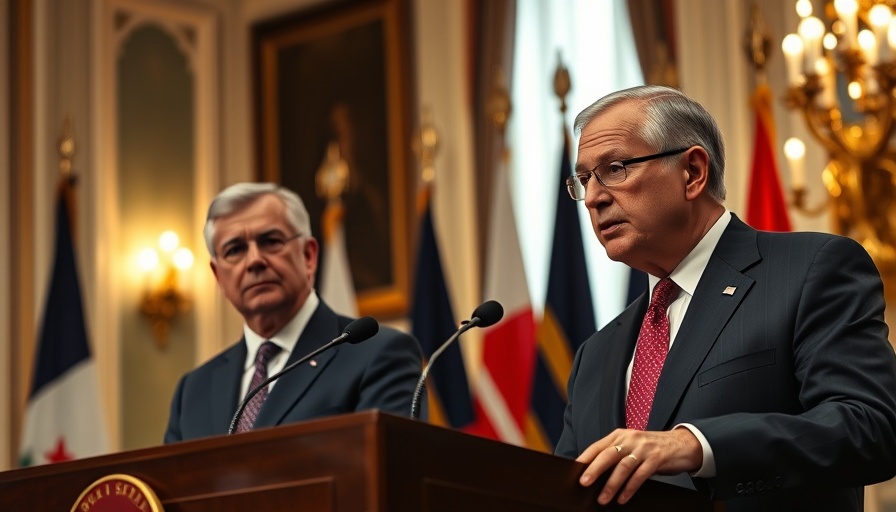
What Prompted Ron Paul's Call to Action?
In the ever-evolving landscape of U.S.-Israel relations, former Congressman Ron Paul has stirred debate by suggesting that President Trump should utilize his upcoming conversation with Israeli Prime Minister Benjamin Netanyahu to deliver a firm message: it’s time for Israel to take responsibility for its own defense. Paul believes that U.S. financial support and weaponry have not brought peace; rather, they have led to cycles of aggression and conflict.
The Consequences of War: A Cautionary Tale
The aftermath of Israel’s recent military action against Iran presents a compelling case for reevaluation. Following a surprise attack that initiated a 12-day war, Israel faced significant pushback from Iran, resulting in chaos and severe consequences for both nations. Reports indicate that many Israelis sought to leave their homeland as the war unfolded—an alarming manifestation of public sentiment toward government actions. This showcases the often-hidden social and economic repercussions of ongoing military conflict.
Breaking Down U.S. Support for Israel: A Thematic Analysis
Paul asserts that the United States’ unwavering support for Israel has inadvertently fostered a cycle of violence. Financial assistance and military resources enable Israel's aggressive posture, but they fail to contribute to lasting peace or security in the region. In fact, the lack of accountability could be damaging not only for Israel but for the broader interests of the United States in the Middle East.
Alternative Approaches: Peace Over War
What if the U.S. shifted its approach from military assistance to diplomatic solutions? A strategy that prioritizes negotiation over conflict could allow for greater self-determination within Israel and a resulting decrease in tensions with its neighbors. For many, the idea of offering Israel “tough love” resonates, especially within communities affected by war and violence.
Crafting a Stable Future: The Path Forward
If President Trump effectively communicates to Netanyahu that future financial support hinges on reduced military aggression, it may catalyze a significant shift. The message needs to be clear: the United States will not finance endless conflict or aggression. This stance could not only stabilize Israel’s future relations with neighboring countries but potentially reaffirm American citizens’ faith in their government’s commitment to peace.
Public Reception and Future Implications
This radical proposal raises questions among residents of Bakersfield and other American citizens about the U.S. role in foreign conflicts. As discussions around military funding and foreign interventions continue to gain traction, what implications will this have for everyday Americans? Making informed choices at the ballot box could be vital to reshaping U.S. foreign policy towards a more peaceful tone.
As Paul suggests, the moment for change is now. And amidst rising tensions, national leaders must reassess the consequences of continued military funding and actively pursue alternatives that lead to a prosperous and peaceful future for all.
Take Action: Your Voice Matters!
As we navigate these complex issues, it's imperative to stay informed and voice your thoughts on U.S. foreign policy. Contact your congressional representatives to express your views on military funding and foreign relations. Together, we can foster a dialogue that prioritizes peace over conflict.
 Add Row
Add Row  Add
Add 



Write A Comment